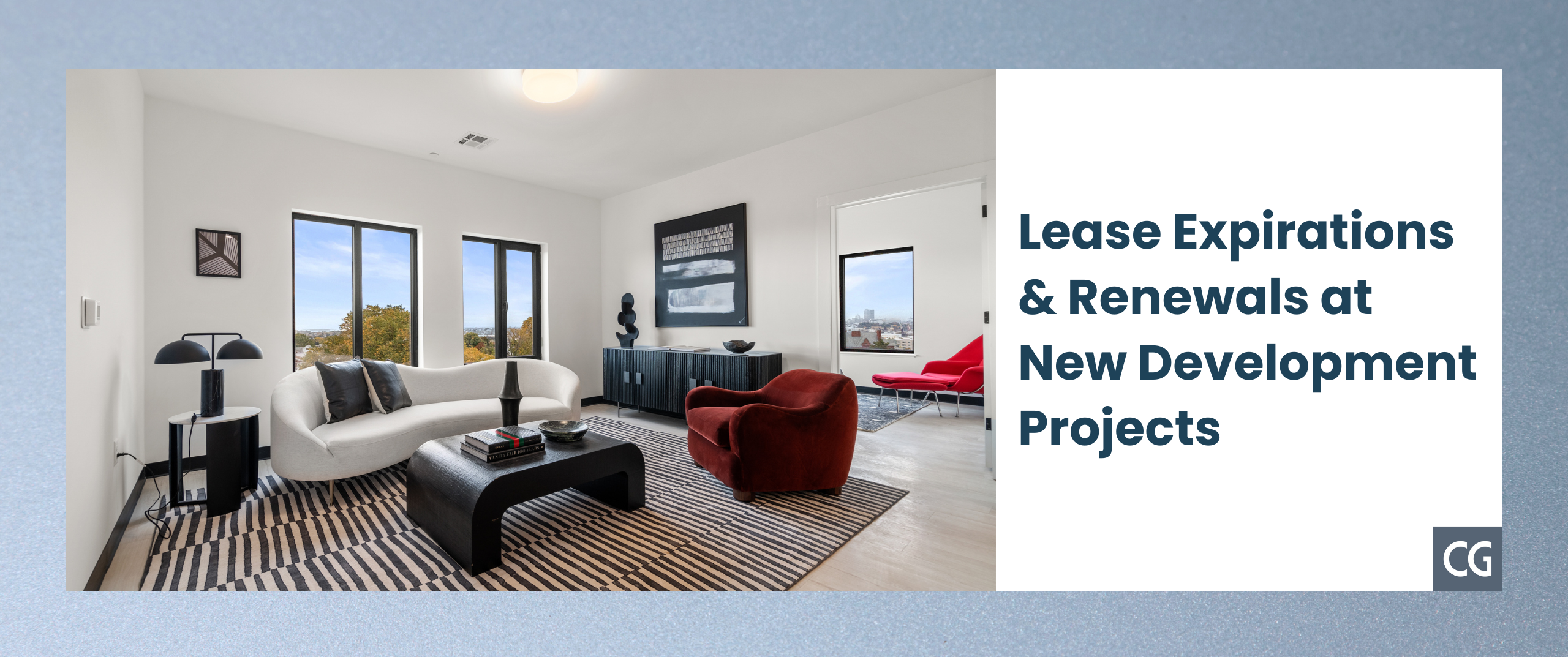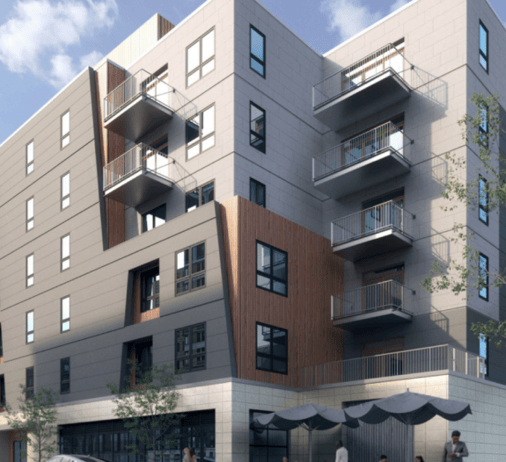Planning for Lease Expirations & Renewals at New Developments
When it comes to leasing new development properties, developers often prioritize filling as many new apartments by the time construction is complete. While this objective is a crucial consideration for a successful lease-up process, it's equally important to consider two factors for increasing NOI long-term: lease expirations and renewal strategies. Analyzing these and planning accordingly can help ensure you optimize income while maintaining a thriving community of residents beyond the initial lease-up season.
What Are Lease Expirations?
Lease expirations refer to when a resident's apartment lease contract ends. If a resident agrees to a 12-month lease starting on September 1st, for example, the lease expiration date would be August 31 of the following year.
What Are Lease Renewals?
When a lease expires, the resident typically has the option to sign a renewal offer to continue occupying the unit or vacate the premises completely if they do not renew. It is the owner's responsibility to initiate the renewal process by the anticipated lease expirations. A few key parts of the renewal process:
- Renewal Notices: Most standard leases require the owner/management to provide tenants advanced notice of their upcoming lease expiration. Residents should be given 120-150 days to decide whether they intend to renew the lease at the expiration date or not. Depending on the outcome, this is the opportunity for owners to make strategic pricing increases.
- Move-Out Notices: If the tenant plans to fully move out upon lease expiration, they are expected to formally notify management in line with the move-out notice period stipulated in their lease.
The Renewal Process Explained
Before offering a lease renewal, owners need to conduct property inspections. This will not only ensure that the property is well-maintained but also allow residents to report any maintenance issues that need to be addressed before committing to another year.
When notifying a resident about lease renewals, owners must specify the terms of the renewal, which may encompass alterations in rent or other conditions. It is important to ensure that the communication is well-written and easy to comprehend. During this time, residents should also be allowed to provide feedback or address any concerns they may have.
Whether a resident decides to stay or go, the renewal process allows owners an opportunity to review market conditions and increase rental rates. If a resident decides to stay, the owner should provide them with an updated lease agreement that includes any increase in rent or changes in terms. If a resident decides to end their lease following the renewal notice, it is important for owners to promptly plan for releasing the unit.
The Importance of Ample Notice for Lease Renewals
Providing renters with ample notice for lease renewal offers several advantages. Firstly, it allows for sufficient lead time to effectively market units if the renewal offer is declined. When a lease renewal is turned down, owners can proactively plan to relist the apartment to minimize vacancy. To achieve rental price goals and ensure a smooth transition, it is recommended to list the unit 120-150 days before the lease expiration date. This proactive approach not only helps owners achieve their rental objectives but also enables current residents to plan their next apartment search well in advance.
In Conclusion
The purpose of a strategic renewal process is to cultivate a positive and mutually beneficial relationship between owners and tenants. Additionally, it empowers owners to effectively strategize their revenue and property management budgets. The ultimate objective during this period is to maximize rental income and minimize vacancy by thoughtfully assessing current rents in comparison to unit-turn costs and projected future rents. When lease renewals are delayed or not planned for in advance, the leasing team faces a limited window to effectively market the unit, potentially resulting in vacancies or leasing at a lower rate than the previous term. This can impede efforts to achieve optimal rents for the property.
At CHARLESGATE, our property management and leasing teams work together to provide a great resident experience at all of our rental properties. We understand the importance of timely lease renewals in achieving optimal rents for a property while working directly with residents to ensure they feel valued and appreciated. If you are a developer preparing for a lease-up, don't hesitate to reach out to us today. We will work together to ensure your strategy is optimized for long-term profitability and sustainable growth.

